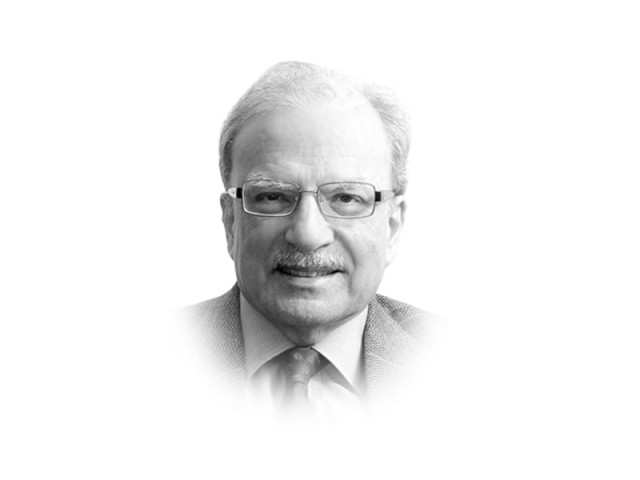Living in the Muslim world
Much of the Muslim world has lagged behind developing nations due to lack of political stability and social harmony.

The Arab Spring of 2011 changed many assumptions regarding governance in the Muslim world. In the period that followed, five questions were asked. These relate to the roles of Islam and the military in politics, the location of executive authority, accommodation of minorities within the political and social systems, and the basis of relations with the West. In the move towards the establishment of such an order, there will be flow of ideas and influences from one country to the other. In this context, Pakistan will have an important role to play. The reason for that is simple: Pakistan has struggled the hardest and longest in finding answers to the questions being raised in the Muslim world.
By far, the two most important questions are the roles of Islam and the military in the evolving political systems. Pakistan and Turkey have found an answer to the first question, while the Arab world is still looking for it as it transits from one type of political order to another. These two non-Arab Muslim states have come from different directions to find more or less the same solution. In spite of the intense campaign and hard work put in by the political organisations that call themselves Islamic, it is clear that the majority of the Pakistani people don’t want to live in a political system that is strictly Islamic. This is the main reason why those who want to create an Islamic state are operating from outside the political system rather than from within it. They have chosen to use violence as their tool. That is not acceptable to the majority. The mainstream political parties are prepared to accept Islam’s guidance, not its ruling tenets. The system that emerged since 2008 has resolved this issue.
Turkey has reached the same conclusion but has come to it from the other side. Kemal Ataturk, the founder of modern Turkey, created a secular state in which a number of practices associated with the practice of Islam were strictly banned. Such draconian dispensation produced instability. The country was able to resolve the issue of Islam in politics once power was assumed by the Justice and Development Party headed by Prime Minister Recep Tayyip Erdogan. He and his party have declared that while the religion of the vast majority of the country’s people must be respected, it must not have a role in governance. The Arab world, however, has not found an answer as is shown by the struggle over the draft constitution produced by the Muslim Brotherhood. According to Western observers, “to Mursi and his Islamist backers, the draft charter is the legitimate product of a democratically-elected Constitution-writing assembly that is dominated by Islamists. To his opponents, the document represents a kind of tyranny of the new Islamist majority.”
The second question — the role of the military — has been answered decisively by Turkey and to some extent by Pakistan. It, too, remains unanswered in the Arab world. In both, it has become clear to the men in uniform that the people want them to remain in their barracks and help to provide security to the citizens. Any attempt to enter the political space will be resisted by the street. The street has shown its power not only during the Arab Spring but even before that in the Lawyers’ Movement of 2007 in Pakistan that brought the dismissed judges back to the bench. In Egypt, however, the Brotherhood has been tempted to use the military to strengthen its claim to power. In the controversial decree issued by President Mohamed Mursi, the military was given additional powers to deal with the protests that may seriously disturb the peace as the Constitution was voted upon in the December 15 referendum. In the article next week, I will take up some of the other questions that need answers.
Published in The Express Tribune, December 17th, 2012.














COMMENTS
Comments are moderated and generally will be posted if they are on-topic and not abusive.
For more information, please see our Comments FAQ